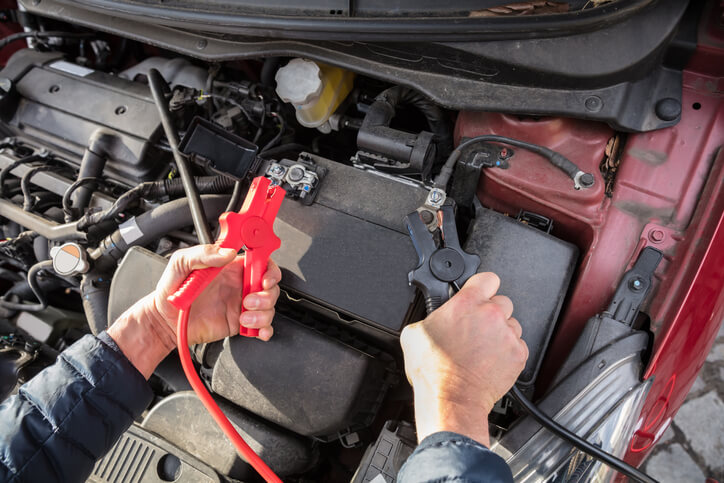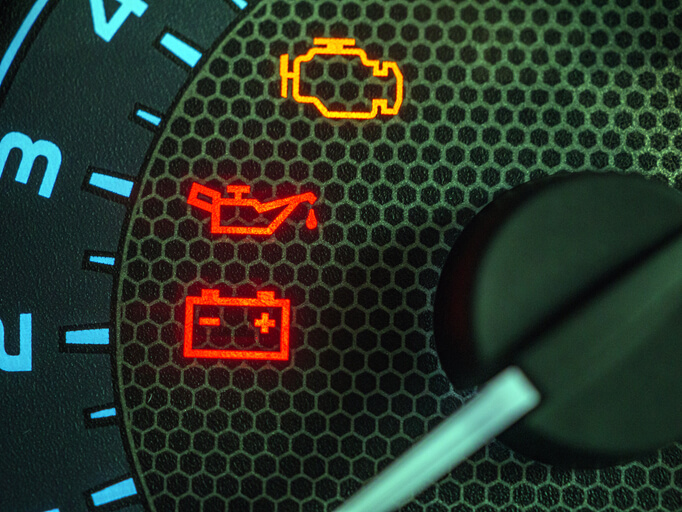Help! My Car Won’t Start: 5 Common Causes Every New Mechanic Should Know
When a car refuses to start, it’s stressful for drivers and a big test for mechanics. For students in auto mechanic training, knowing how to diagnose a no-start problem is a vital skill. By learning the common causes early, you’ll be ready to apply real-world vehicle diagnostics effectively.
1. Dead Battery
The most common culprit is a dead or weak battery. Without enough charge, the starter motor won’t crank the engine. Signs include:
- Dim or flickering dashboard lights
- Clicking sounds when turning the key
- No electrical response at all
Corroded or loose battery terminals can also mimic this issue. Also, remember to check if the alternator is recharging the battery properly, as a faulty alternator often leads to repeated battery failures.

2. Faulty Starter Motor
If the battery is fine but the engine won’t crank, the starter motor may be to blame. Common signs are:
- A rapid clicking sound or a single click with no engine turnover
- Smoke or a burning smell from the starter
- Other electrical systems are working normally, but no engine response
Starter motors wear out over time and usually need replacement once they fail.
3. Bad Ignition Switch
The ignition switch sends power from the battery to the starter and other systems. If it fails:
- Turning the key produces no cranking sound
- Dashboard lights may flicker or not come on at all
- Electrical accessories may work, but the engine doesn’t start
A faulty switch disrupts the signal to the starter motor, and replacing it is often the solution. Using vehicle diagnostics can help confirm whether the ignition switch is the source of the problem.

4. Fuel System Problems
Engines need fuel to run, and several fuel-related issues can cause a no-start:
- Empty tank: one of the simplest and most overlooked reasons
- Clogged fuel filter: prevents fuel from reaching the engine
- Faulty fuel pump or injectors: starve the engine of fuel
If the engine cranks strongly but doesn’t fire up, always check fuel delivery early in your diagnostic process.
5. Failing Alternator
A bad alternator won’t recharge the battery while the car is running. That means:
- The vehicle may start after a jump, but die quickly
- Headlights and electronics may dim before the stall
- A battery warning light may appear before complete failure
Testing alternator output with a multimeter is often encountered during the practical part of the auto mechanic training, and replacement is usually straightforward.
Bringing It All Together
Most no-start problems can be traced back to one of these five causes:
- Dead battery
- Faulty starter motor
- Bad ignition switch
- Fuel delivery issues
- Failing alternator
By learning to recognize these patterns, you’ll develop strong vehicle diagnostics skills. In auto mechanic training, students practice troubleshooting systematically, moving from the simplest explanations to more complex ones.
Building Confidence Through Auto Mechanic Training
Mastering the causes of no-start problems is more than just theory. It’s the foundation of practical, hands-on learning. By understanding how to diagnose issues like weak batteries, faulty ignition switches, or fuel delivery failures, students sharpen their ability to think critically and troubleshoot under pressure.
These real-world challenges are where vehicle diagnostics skills come to life, preparing future technicians for success in the shop and beyond. With the right auto mechanic training, aspiring professionals gain both the technical expertise and the confidence to handle complex repair scenarios from day one.
Are you ready to take your skills to the next level?
Enroll in an auto mechanic school where you’ll learn to confidently handle no-start issues and many other real-world automotive challenges.
Frequently Asked Questions: Car Won’t Start Issues
Q: What is the most common reason a car won’t start?
A: A dead or weak battery is the most common cause. Without enough charge, the engine won’t crank.
Q: How can I tell if it’s the battery or the alternator?
A: If a car starts with a jump but dies shortly after, it’s usually the alternator. If it doesn’t start at all, it’s more likely the battery.
Q: Can fuel problems prevent a car from starting?
A: Yes. An empty tank, clogged filter, or failing fuel pump can keep fuel from reaching the engine, leading to no-start issues.
Q: What tools do mechanics use for diagnosing no-start problems?
A: Multimeters, battery testers, and fuel pressure gauges are commonly used in auto mechanic training programs to teach accurate troubleshooting.
Q: Do modern cars make diagnosing no-start problems easier?
A: Yes. Onboard diagnostic systems (OBD-II) can point technicians toward issues, but hands-on knowledge is still essential.
Sources
YourMechanic – Common reasons cars won’t start
Firestone Complete Auto Care – Why your car won’t start
J.D. Power – Causes of no-start conditions
Automotive Training Centre – Diagnostics and service training materials


